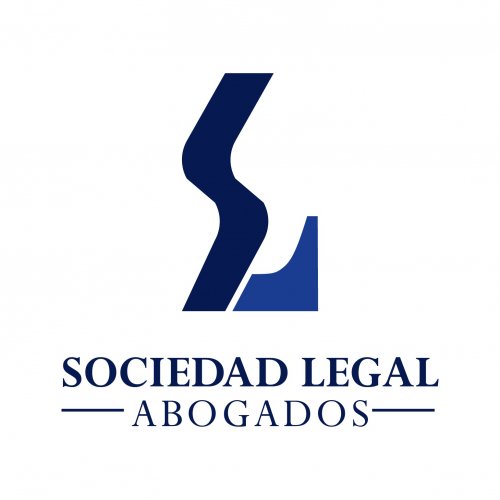Best Child Visitation Lawyers in Ecuador
Share your needs with us, get contacted by law firms.
Free. Takes 2 min.
Free Guide to Hiring a Family Lawyer
Or refine your search by selecting a city:
List of the best lawyers in Ecuador
About Child Visitation Law in Ecuador
Child visitation laws in Ecuador are part of the broader family law system that ensures the welfare and best interests of the child. The legal framework is designed to uphold the child's right to maintain personal and direct contact with both parents, unless it is not in the best interests of the child. Visitation rights are generally granted to the non-custodial parent and may also be extended to other significant relatives, such as grandparents, depending on the circumstances. The primary consideration in all decisions is the well-being of the child involved.
Why You May Need a Lawyer
While some visitation arrangements can be amicably negotiated between parents, there are several situations where legal assistance might be necessary:
- Disputes between custodial and non-custodial parents regarding visitation schedules.
- Concerns about the child's safety during visits with the non-custodial parent.
- Enforcement of visitation rights when one party is not complying with a court order.
- Adjustments to existing visitation arrangements due to changes in circumstances, such as relocation.
- Complex cases involving the rights of third parties, like grandparents or other family members, seeking visitation.
Local Laws Overview
Ecuador's child visitation laws are outlined in the Children and Adolescents Code, which is based on principles of the United Nations Convention on the Rights of the Child. Some key aspects include:
- The centrality of the child's best interests in determining visitation arrangements.
- The right of the child to maintain a relationship with both parents, unless proven to be harmful.
- The possibility of supervised visitation if there are concerns about the child's welfare.
- The potential involvement of psychological experts in cases of contentious visitation disputes.
- Processes for modifying visitation rights through legal channels if required due to significant life changes.
Frequently Asked Questions
What factors do courts consider when determining visitation schedules?
Courts prioritize the child's best interests, taking into account the child's age, relationship with each parent, and any potential risks to their welfare.
Can grandparents request visitation rights?
Yes, grandparents and other significant family members can request visitation, but they must demonstrate that it serves the child's best interests.
How can I modify an existing visitation order?
You must provide evidence of substantial changes in circumstances that justify altering the current arrangement and file a petition in court.
What happens if a parent violates a visitation order?
The affected parent can file a complaint with the court, which may result in enforcement actions or modifications to the visitation order.
Is supervised visitation an option?
Yes, courts may order supervised visitation if there are concerns about the child's safety or in cases involving a history of abuse or neglect.
Can a child refuse visitation with a parent?
If a child expresses a strong preference, the court may consider their wishes, especially if the child is of sufficient maturity, but it will still prioritize the child's best interests.
How are visitation disputes resolved?
Disputes are typically addressed through mediation, negotiation, or, if necessary, adjudication in court.
What documents are required to file for visitation rights?
Documents generally include proof of relationship, identification, existing custody orders, and any evidence relevant to the case.
Do I need a lawyer to apply for visitation?
While it's possible to file for visitation rights without a lawyer, legal assistance is recommended for navigating complex situations or disputes.
What impacts would relocating have on visitation rights?
Relocation can significantly impact visitation arrangements, requiring a legal review to accommodate new circumstances while maintaining the child's best interests.
Additional Resources
Here are some resources that may be helpful:
- The National Council for Childhood and Adolescence (Consejo Nacional de la Niñez y Adolescencia)
- Legal assistance from the Defensoría Pública
- Local family courts for filing and resolving visitation disputes
- Family mediation services that can facilitate negotiation between parents
Next Steps
If you require legal assistance for child visitation issues, consider the following steps:
- Gather all relevant documents, such as current custody orders and any evidence related to the visitation dispute.
- Seek a consultation with a family law attorney experienced in child visitation cases in Ecuador.
- If necessary, file a petition with the appropriate family court to address or modify visitation arrangements.
- Explore mediation services as an alternative to court intervention for resolving visitation disputes.
Lawzana helps you find the best lawyers and law firms in Ecuador through a curated and pre-screened list of qualified legal professionals. Our platform offers rankings and detailed profiles of attorneys and law firms, allowing you to compare based on practice areas, including Child Visitation, experience, and client feedback.
Each profile includes a description of the firm's areas of practice, client reviews, team members and partners, year of establishment, spoken languages, office locations, contact information, social media presence, and any published articles or resources. Most firms on our platform speak English and are experienced in both local and international legal matters.
Get a quote from top-rated law firms in Ecuador — quickly, securely, and without unnecessary hassle.
Disclaimer:
The information provided on this page is for general informational purposes only and does not constitute legal advice. While we strive to ensure the accuracy and relevance of the content, legal information may change over time, and interpretations of the law can vary. You should always consult with a qualified legal professional for advice specific to your situation.
We disclaim all liability for actions taken or not taken based on the content of this page. If you believe any information is incorrect or outdated, please contact us, and we will review and update it where appropriate.
Browse child visitation law firms by city in Ecuador
Refine your search by selecting a city.













